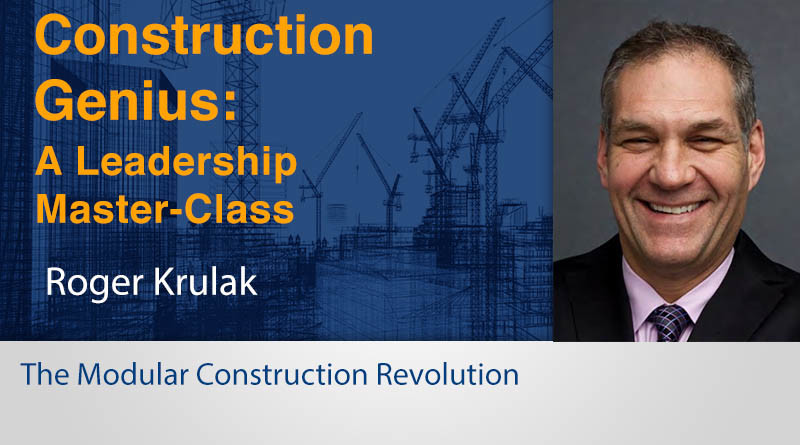This week’s episode features an in-depth interview with Roger Krulak, CEO of FullStack Modular. FullStack Modular is merging offsite volumetric modular construction with new technologies to bring an unprecedented level of control, predictability, and scalability to multifamily development.
According to McKinsey:
“For decades, construction has lagged behind other sectors in productivity. Modular construction offers the industry an opportunity to make a step change: shifting many aspects of building activity away from traditional construction sites and into factories with off-site, manufacturing-style production. Modular (or prefabricated) construction is not a new concept, but technological improvements, economic demands, and changing mind-sets mean it is attracting an unprecedented wave of interest and investment. If it takes hold, it could give the industry a huge productivity boost, help solve housing crises in many markets, and significantly reshape the way we build today.”
About Roger Krulak
With over 25 years in the construction industry, Roger has extensive experience on both the construction and development sides of the real estate business. In 2008 Roger spearheaded the first R&D project for Modular Construction which lead to the creation of a factory and business to build the tallest volumetric modular building in the world. As a Recipient of the Popular Mechanics Breakthrough Award 2014 for his work on the creation of a high-rise modular process he has been publicly recognized as a leader in innovation. Roger received his degree in management and organizational psychology from Babson College.
About FullStack Modular:
FullStack Modular (FSM) is leading a technological renaissance in the construction industry—an industry with one of the lowest rates of technological adoption of all major industries, which devotes less than 1% of revenue to R&D, and which hasn’t seen productivity gains in decades. Through the use building information modeling, proprietary technology, offsite construction, and in-house supply chain management, FSM takes a fully integrated approach to design, manufacturing, and construction. The result is a simplified development process with cost savings up to 15% and time savings of 25-50% versus conventional site-built construction. FSM is one of America’s only steel-framed modular builders and is capable of building modular buildings from seven to 45 stories. Focusing on multi-story, multifamily residential, hospitality, dormitories, and hospital rooms, FSM serves cities all along the eastern seaboard.
Interview Highlights:
- The current state of modular construction in the United States
- How modular construction is defined
- The need for a paradigm shift in how construction projects are conceived, designed, and built
- How government influence drives modular adoption in other countries
- The process of modular, and how it improves upon traditional construction processes
- The challenges of pitching modular to developers
- The difference between a modular builder and a general contractor
- Modular and organized labor
- Common misconceptions about modular construction
- Roger’s family history, and how that drew him to modular construction
- Three reasons why modular is a great approach for the right project type
- Lessons learned from the Forest City Project
- How Full Stack Modular was launched
- Three things that need to happen for modular to become more prevalent
- Roger’s passion for education and presenting modular approaches in Columbia, Harvard, and M.I.T.
- Dell’anima…Roger’s favorite restaurant in New York City (you have to check it out).
This episode is brought to you by the Construction Leaders Dashboard
The Construction Leaders Dashboard is one of the simplest and yet most powerful tools for leaders in construction companies of all sizes that can be used to clarify what you need to focus on to be a highly successful leader. It includes Vision, Mission, Values, Edge, Initiatives, Metrics, Key Relationships, and Development Opportunities.




